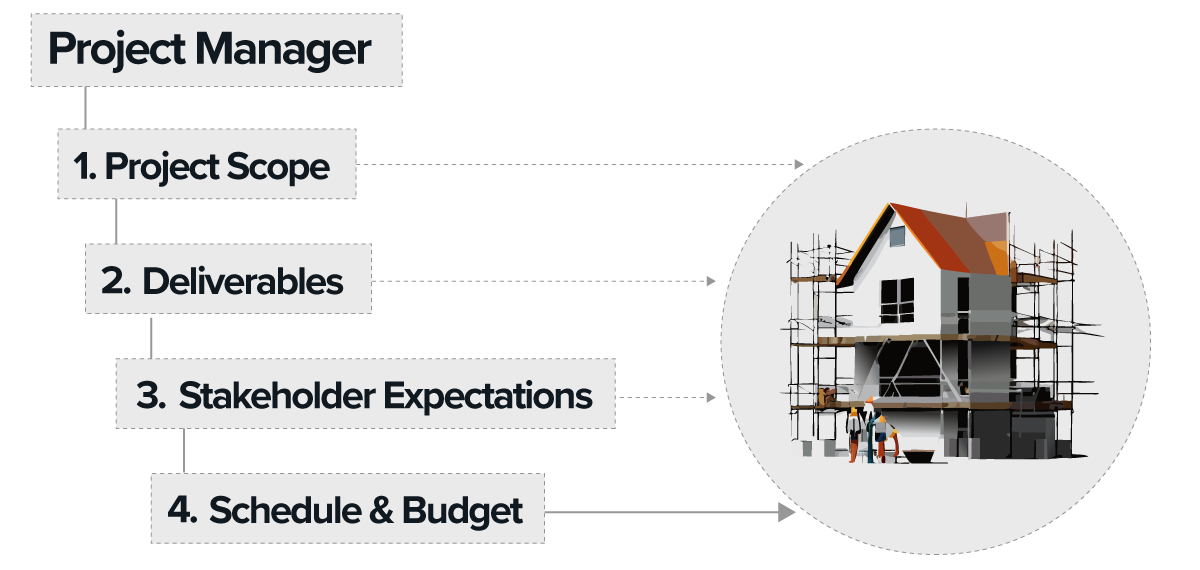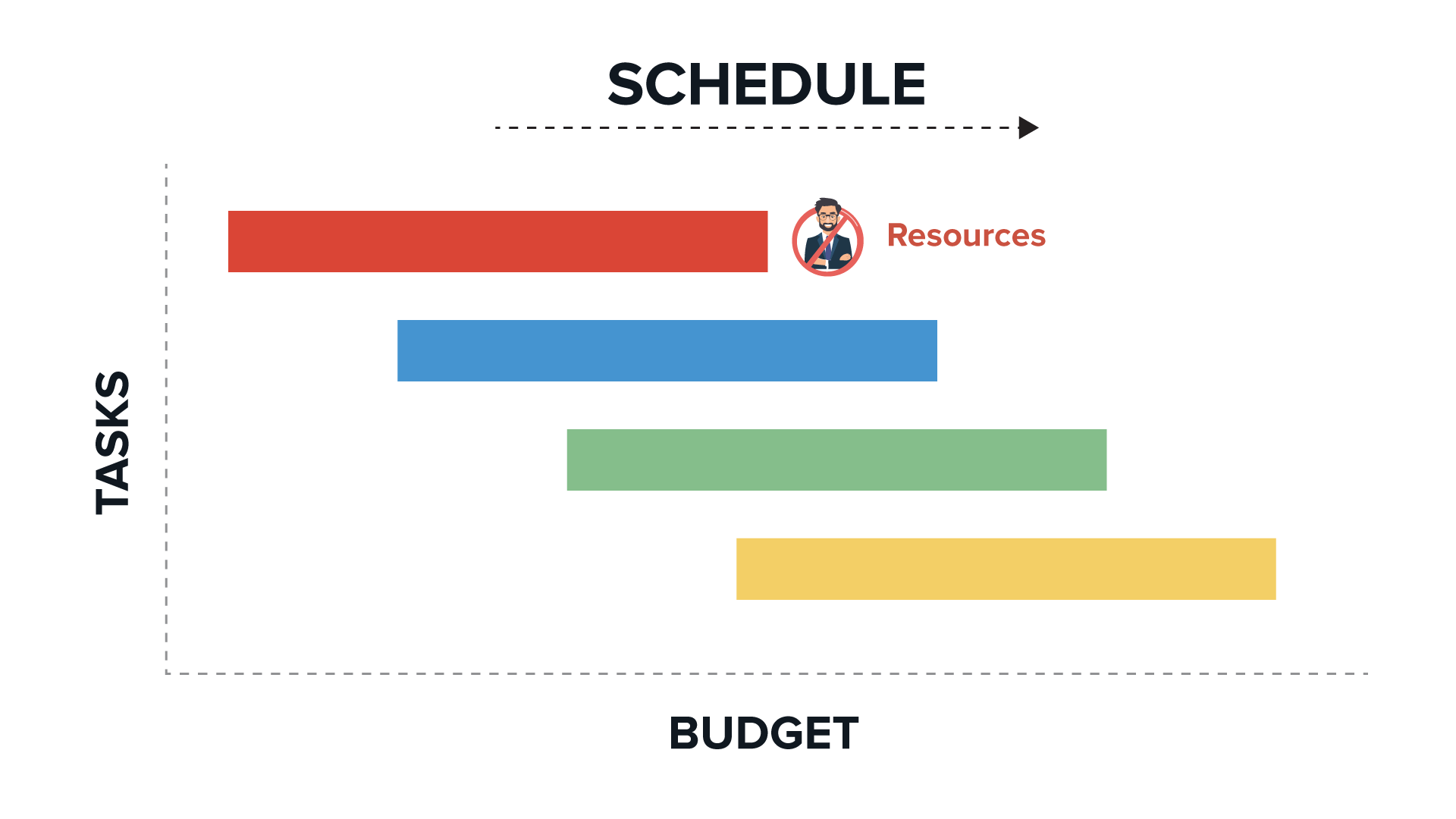Table of Contents |
There are many responsibilities of a project manager. A project manager will:
IN CONTEXT
Imagine that you're the project manager for the construction of a home. Your first step would be to document in rough terms what the project is going to do. In this case, it's the building of a house—hopefully completed this year for a single family. This is the scope of the project.

Details will be flushed out later. For now, it's important that everyone agrees on the basics of the work. Now, it's important to get everyone on the same page: what type of house will this be? How many bedrooms? How many baths? What is the square footage? What style of house will it be? In this project, the house and all that it contains is considered the deliverable.
It's the responsibility of the project manager to document the expectations of the people who want to build the new home—the stakeholders. It's the project manager's role to manage the stakeholders' expectations. If a couple wants a 10,000 square foot house, but their budget is $100,000, the project manager needs to explain, or help others explain, why that just won't work. Assume the type of home is agreed upon.
Next, a schedule and budget must be established with stakeholders and team members. This is a critical stage since it will be the project manager's responsibility to make sure the project comes in on time and within budget.
The more complex a project is, the more likely it is that there will be delays and additional costs. The project manager should always attempt to build in additional time and money for these unknown risks.
A project manager's skill set has many parts:
During a project, the right path or decision will not always be obvious. Conflicts will happen and it'll be up to the project manager to make a decision that will not always be obvious.
The project manager must use a wide variety of interpersonal and communication skills to lead the teams when a conflict occurs.
When conflicts arise, it's important for the project manager to listen clearly to all sides, since that's the key to negotiation and eventually resolution.
Often, the solution to a problem doesn't come from choosing one option or another but by combining options and collaborating. A project manager should always consider how to help all sides benefit and, more importantly, how to help the project succeed.
How does a project manager lead like this? It is often through strong communication. Whether speaking, writing emails, or preparing a report, a project manager needs to be clear about a project's goals and about the consequences if those goals aren't met. If a project manager hides information from team members or stakeholders, a project will suffer.
Good communication must be in place from the beginning for a project to succeed.
In addition, a project manager must analyze problems as they occur, and facilitate solutions.
Project managers often find themselves as detectives, interviewing team members about an issue before bringing together the right group of people to resolve the issue. When doing this, it's important to distinguish between what is actual evidence and what is just a guess.
EXAMPLE
If an engineer tells you that the building support will not hold a certain weight, that's evidence. If a salesman tells you the same thing, they might still be right, but it's a guess until you confirm with an engineer.If this all sounds like quite a bit to manage, you'd be correct. That's why it's important for a project manager to be organized and to keep project members organized too. Organizational skills are required to keep track of multiple tasks and deadlines, which is essential for the success of a project.
Documentation must be consistent, and methods to distribute the documentation quickly must be in place. It’s also important the project manager maintains the history of the project since questions often arise concerning decisions made in the past.
The last skill is the one you are using right now. It's the skill to learn something new, to develop expertise in a new field.
Project managers aren't always assigned to areas that they know intimately, but that is not always a disadvantage.
EXAMPLE
If you've never built a house but you've been assigned as the project manager, that encourages you to ask questions of the builders with expertise.Asking questions is a skill that all project managers use. And it's one they should practice throughout a project's life cycle.
Organizations will use project managers in different ways, which will result in different levels of authority. Some project managers have full control over schedule, budget, resources, and the makeup of their project team.
Others might only oversee the schedule and tasks, not resources. In this case, team members would report to departmental or even technical managers.

Organizations may only allow project managers to make certain decisions. Sometimes the project scope or the deliverables can only be changed after it's been approved by key executives or project committees.
These differences result in challenges for a project manager, so it's important to develop the skills needed. Communicating clearly and managing the expectations of everyone who oversees a project is part of a project manager's role too.
Whatever aspects fall within the responsibility of the project manager, it's important to be truthful and clear about the successes and the failures of a project.
Good project managers are passionate about their projects and they know that they serve as the advocate for the project and its members.
They make decisions in the best interest of the project, and they understand the value of information. They honor the need for confidentiality and they make sure all project members understand it too.
Source: This work is adapted from Sophia author Jeff Carroll.